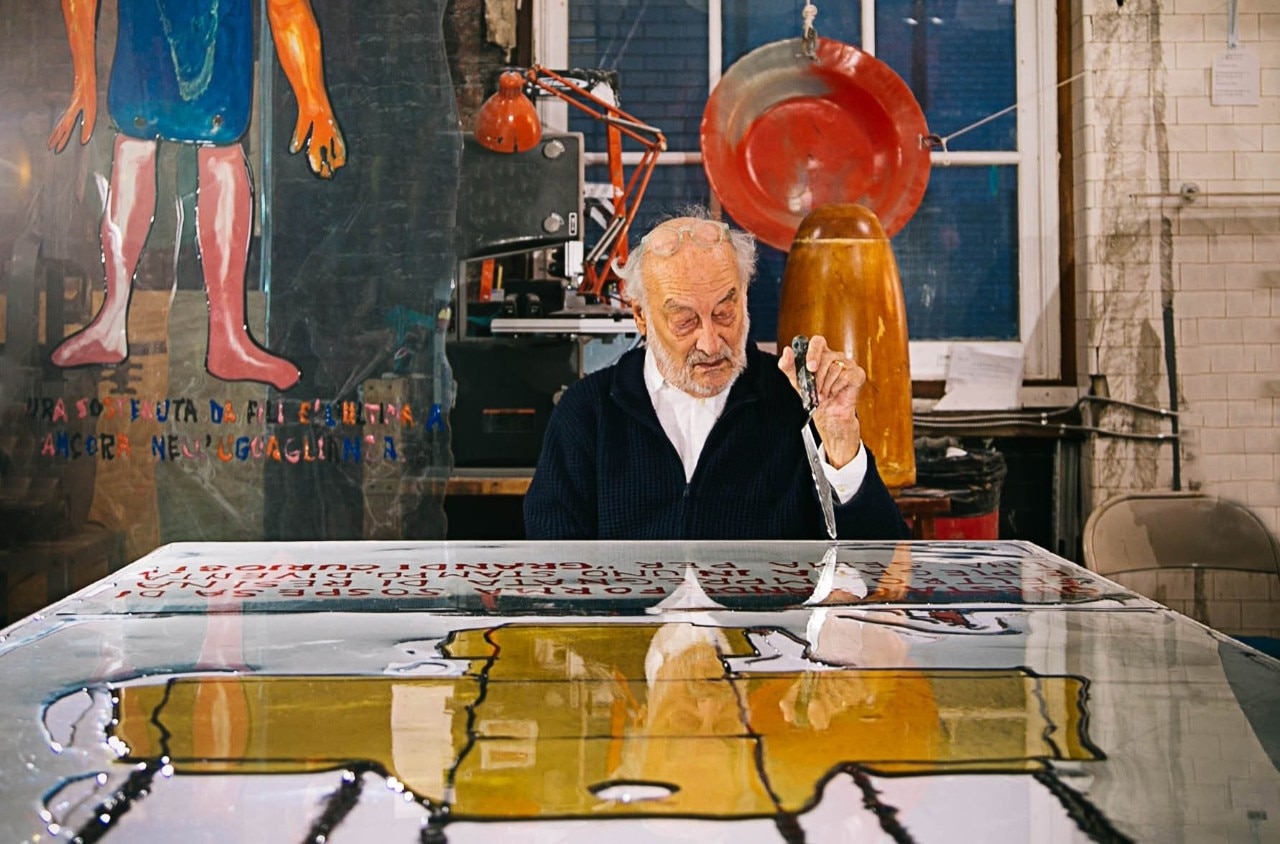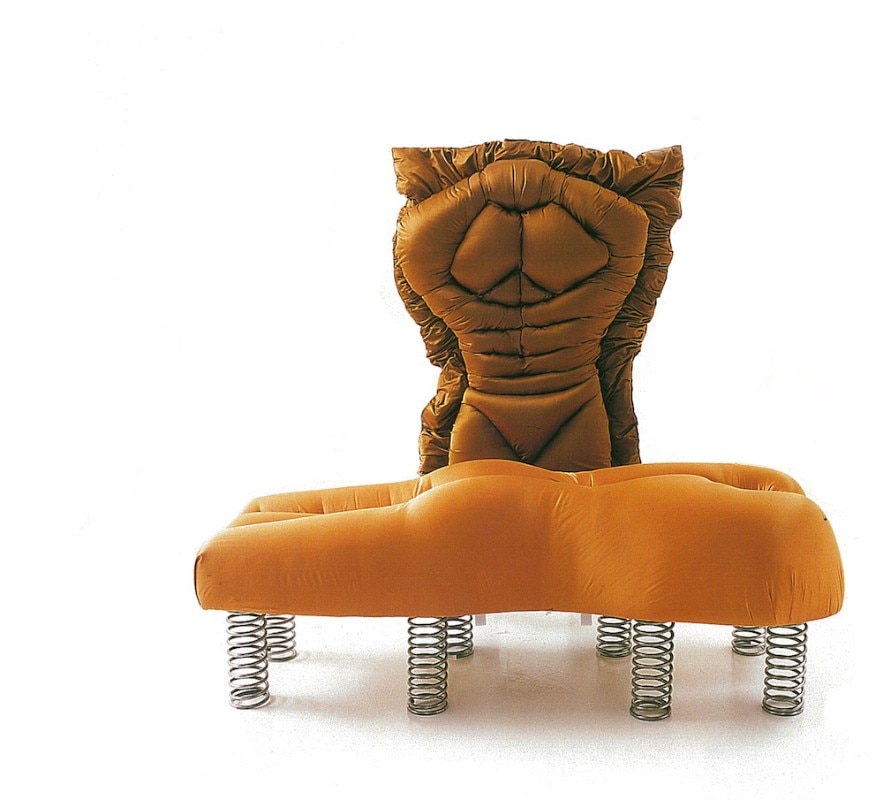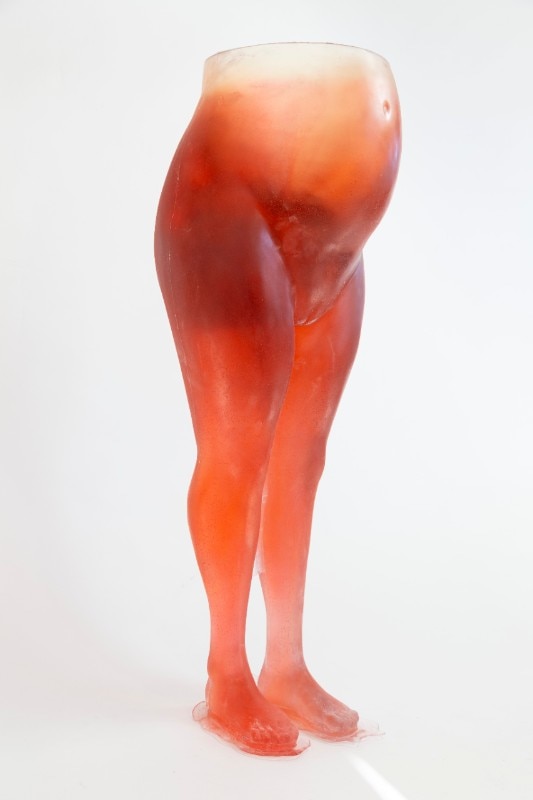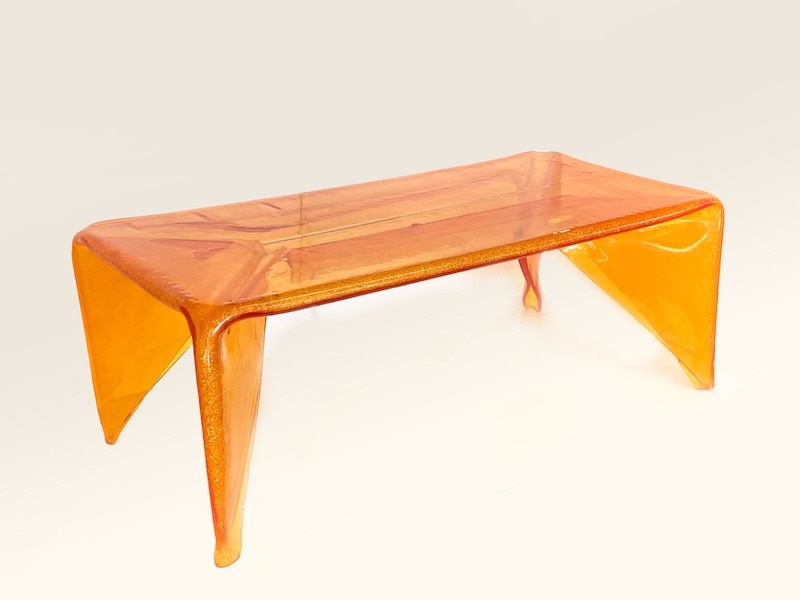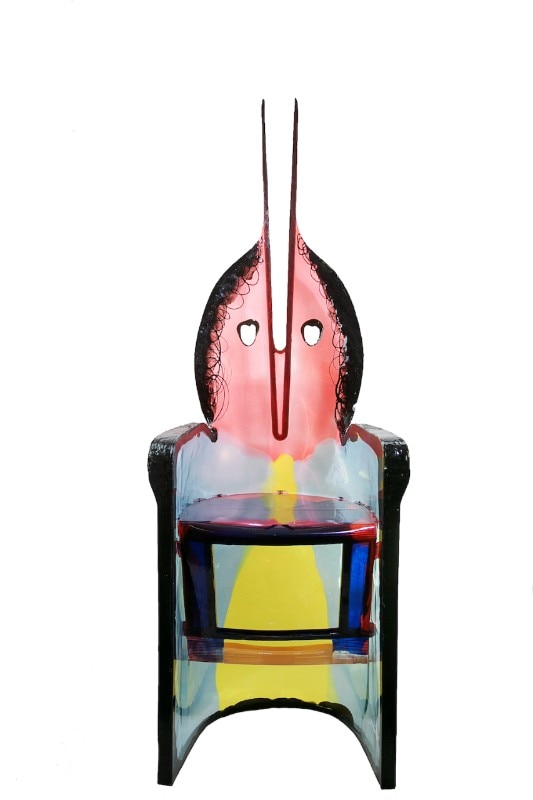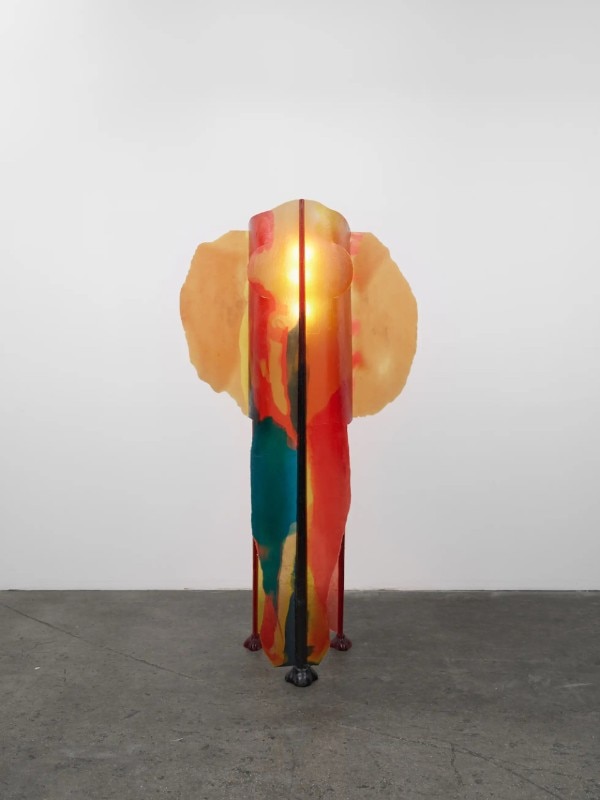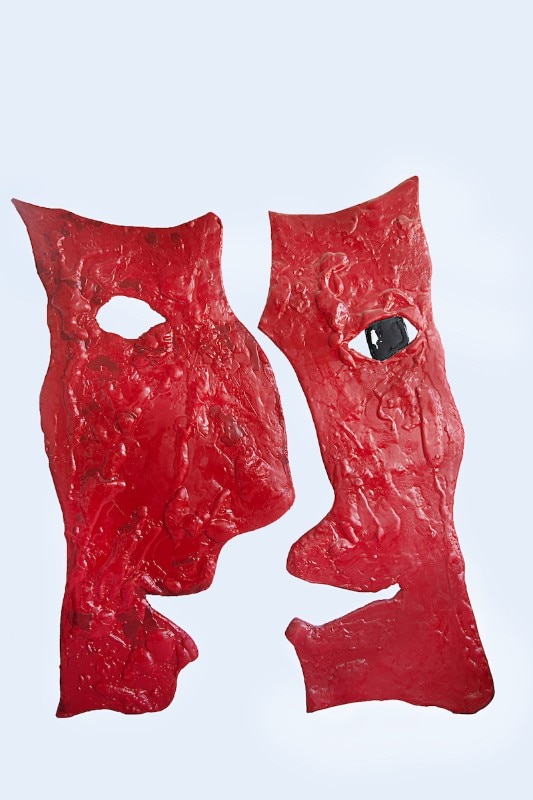Gaetano Pesce, “designer, poet, teacher, philosopher, alchemist, engineer and storyteller,” has passed away. In recent years, his name was back in the limelight, more alive than ever, also thanks to important collaborations such as the one with Bottega Veneta. At the upcoming Milan Design Week he was expected as guest of honor, one of the last maestros of Italian design: he has passed away a few days before. We remember him with this talk in which he recounted his projects, always topical, always visionary, that he would bring to the Fuorisalone.
Gaetano Pesce, an indefatigable great warrior of the things of life, is coming back to Milan for this year’s Salone del Mobile with two major projects.
“Nice To See You” is the title of his exhibition, hosted free of charge to the public at the Veneranda Biblioteca Ambrosiana, a location rich in significance for an exceptional figure like him. The architect, artist, and designer brings together approximately 30 of his most recent pieces, spanning from 2023 to 2024, “chosen not only for their functional utility, intrinsic to the word design, but also for their capacity to convey messages. These are objects that possess a dual purpose: that of being useful and that of making people think,” comments the author. He dedicated this exhibition to his longstanding concern for the broader context of social life.
“In the Hall of Accademia of the Biblioteca Ambrosiana, we show that design is not dead. The design of the various art directors who have no reason to exist and lead Italian industries to repeat themselves without creativity is not the design I am interested in. What we want to convey is rich in meaning; not only does form follow function, but it has another very important element, meaning, which can make people think at a political, socio-economical, religious, philosophical, behavioral, and personal level.” This is the main message that “Nice To See You,” an idea conceived last summer, intends to convey.
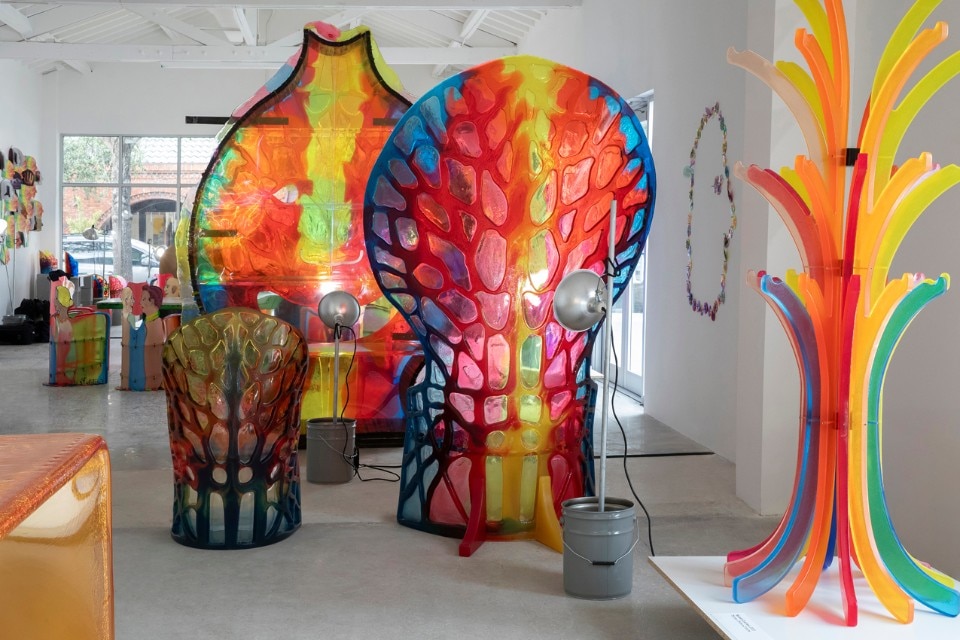
“If some people come out of the exhibition having understood this, I think our effort will be repaid. And so I thank both the museum management, who hosted us in this place of triumph of Italian creativity and where we are honored to bring our work, as well as those who will come to visit and understand our messages. The messages of certain works are research that give formal solution, in other cases they are reflections on time or politics. There is a large sculpture/sofa of two handcuffed hands: certain hands in chains are unjustified, on these we put our bottoms. This should make people think that one of the reasons we put our behinds on is the importance of having information from newspapers and the overall culture of our time. These are not things to form people but that inform them by making them think. In that moment there, in that way, the meaning of my exhibition is achieved.”
The messages of certain works are research that give formal solution, in other cases they are reflections on time or politics.
Gaetano Pesce
But there is more: a large, monumental installation, created in collaboration with the City of Milan, fiercely titled The Tired Man, in Piazza San Pio XI. The Tired Man tells of the ethical toil of the stronger sex.
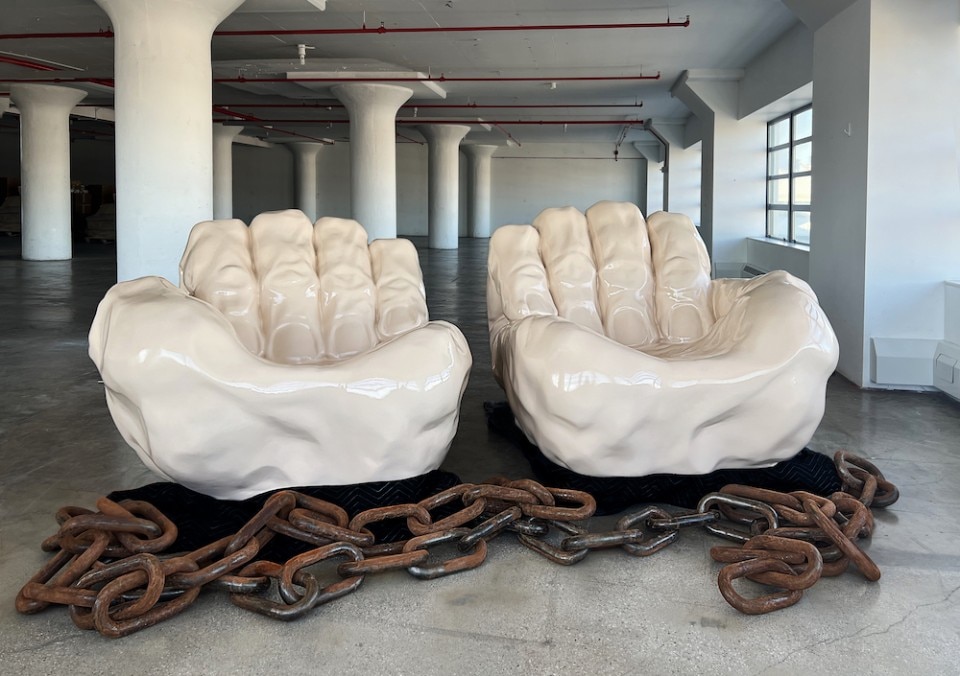
“In the past, man made a lot of discoveries, important achievements, invented airplanes and so on, but all of this has caused a form of energy drain, leaving them feeling tired today. And the signs of this tiredness show in the fact that politicians do not serve the countries they govern, many use attitudes that are not correct and not honest, and instead of projecting positively into the future, life becomes generally impoverished.”
Pesce goes on to argue that, as Umberto Eco said, this is all due to social media, to superficial TV advertising. “Rather than progressing, I have the impression that the world is decaying. A clear sign of this decline are the current out-of-time wars, visions that look backwards instead of looking forwards, the huge costs of which could be devoted to advancing the culture of those places, improving people’s thinking in important countries such as Russia, China, North Korea, and Iran, where the available means are not used to help citizens and places progress but to take steps back instead.”
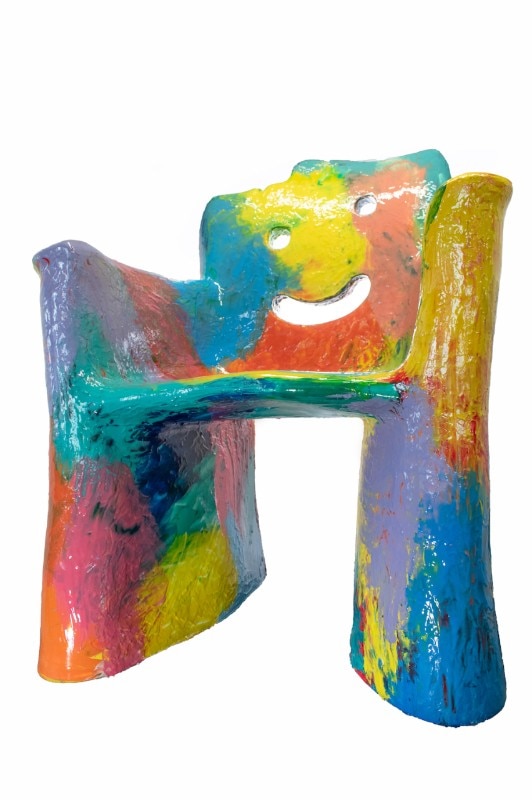
But there’s a glimmer of optimism in the words of the artist: “men are tired, and fortunately women are taking more and more space in the public sphere and no longer just in the private, to do things that make sense, because women have the function of serving. I don't mean serving in the trivial sense of the word, but serving the places in which they invest their time and commitment, like in politics, social work, business and so on, giving results that are evident. I think the lack of honesty of some men does is not there in women. Women are still individuals who, having lived for centuries in the private sphere, are full of genuine energy, and this should make people think. The large eight-meter-tall sculpture of the tired man tends to make people think about that, and I hope it does.” Thank you Master.
Opening image: Photo Olga Antipina

